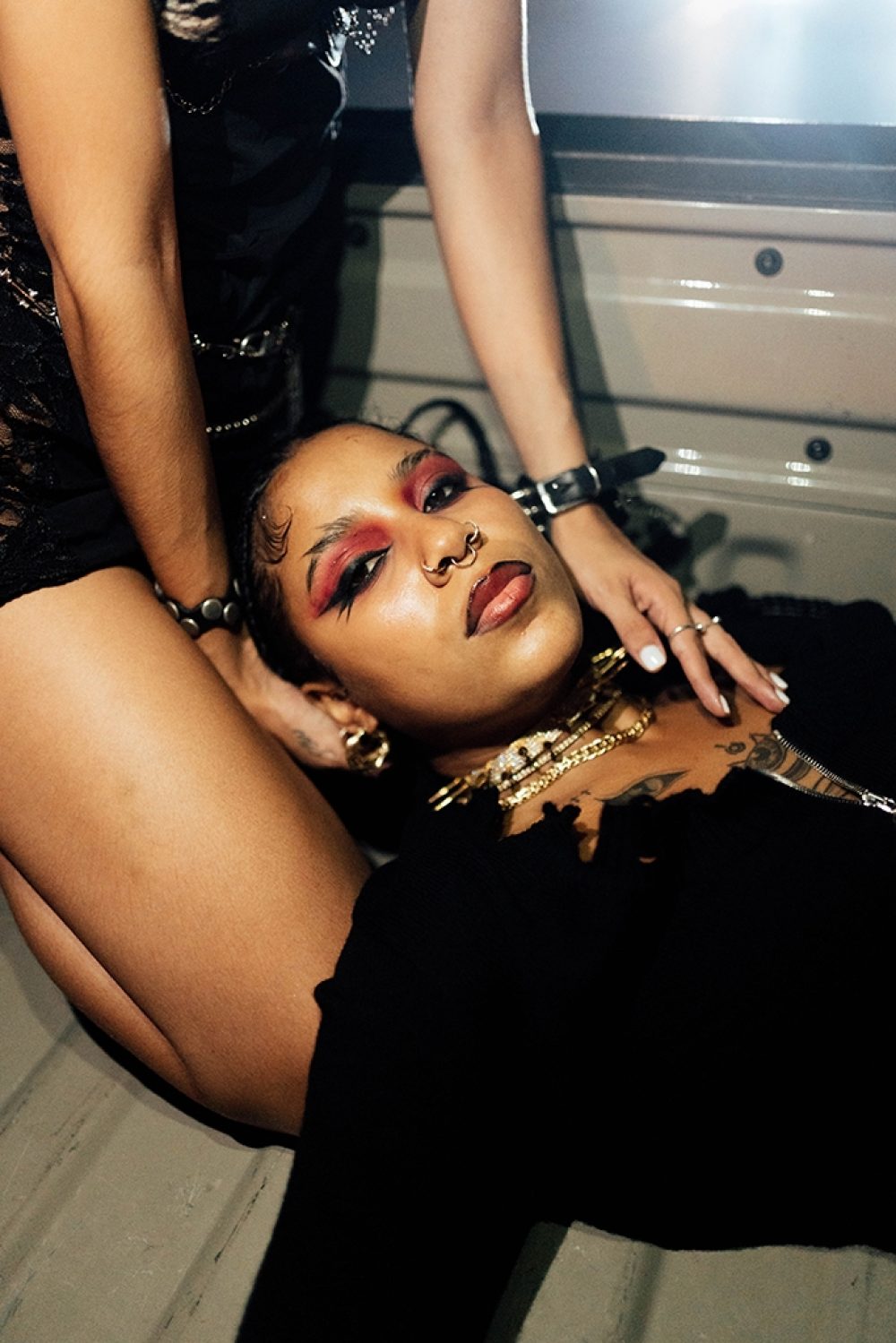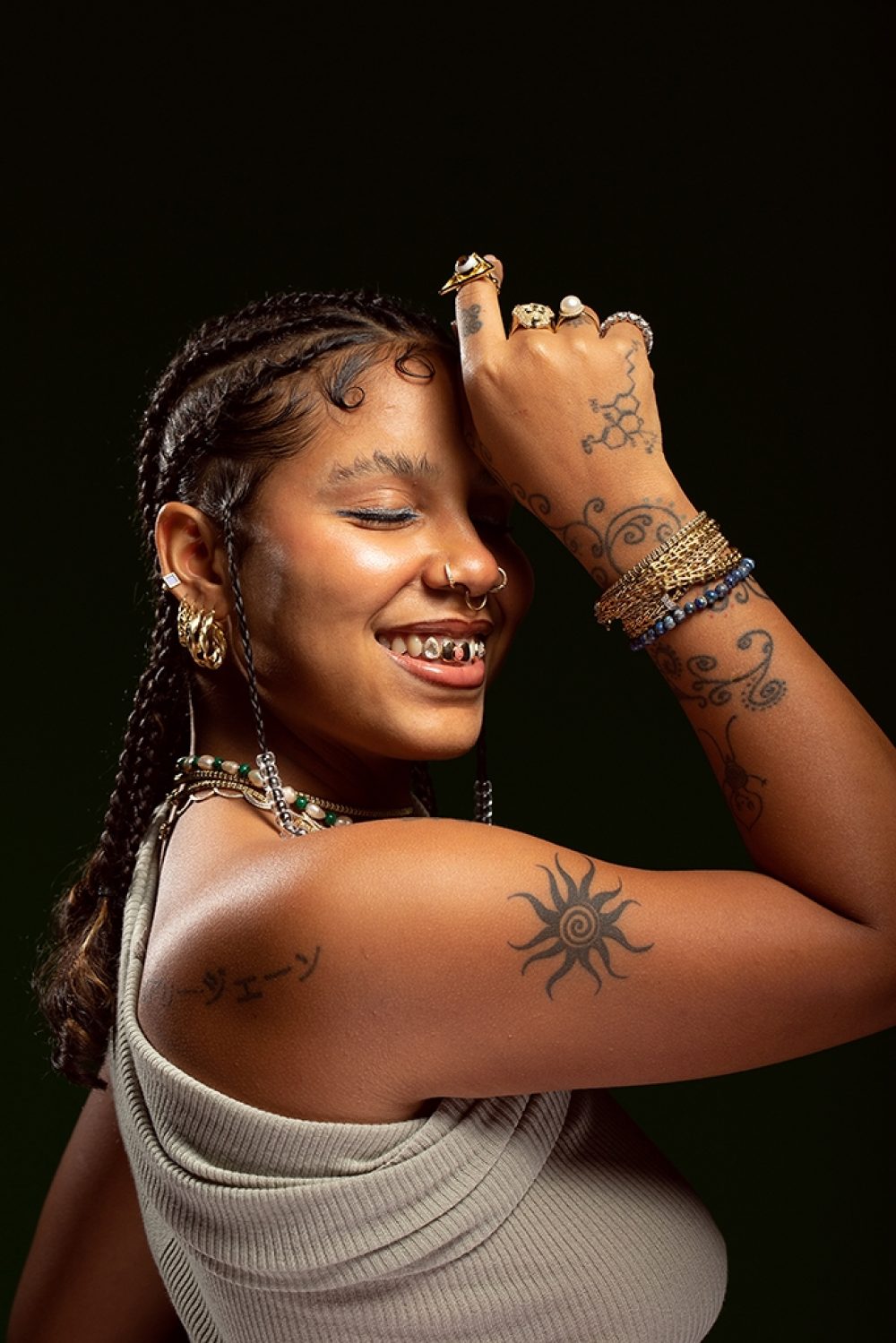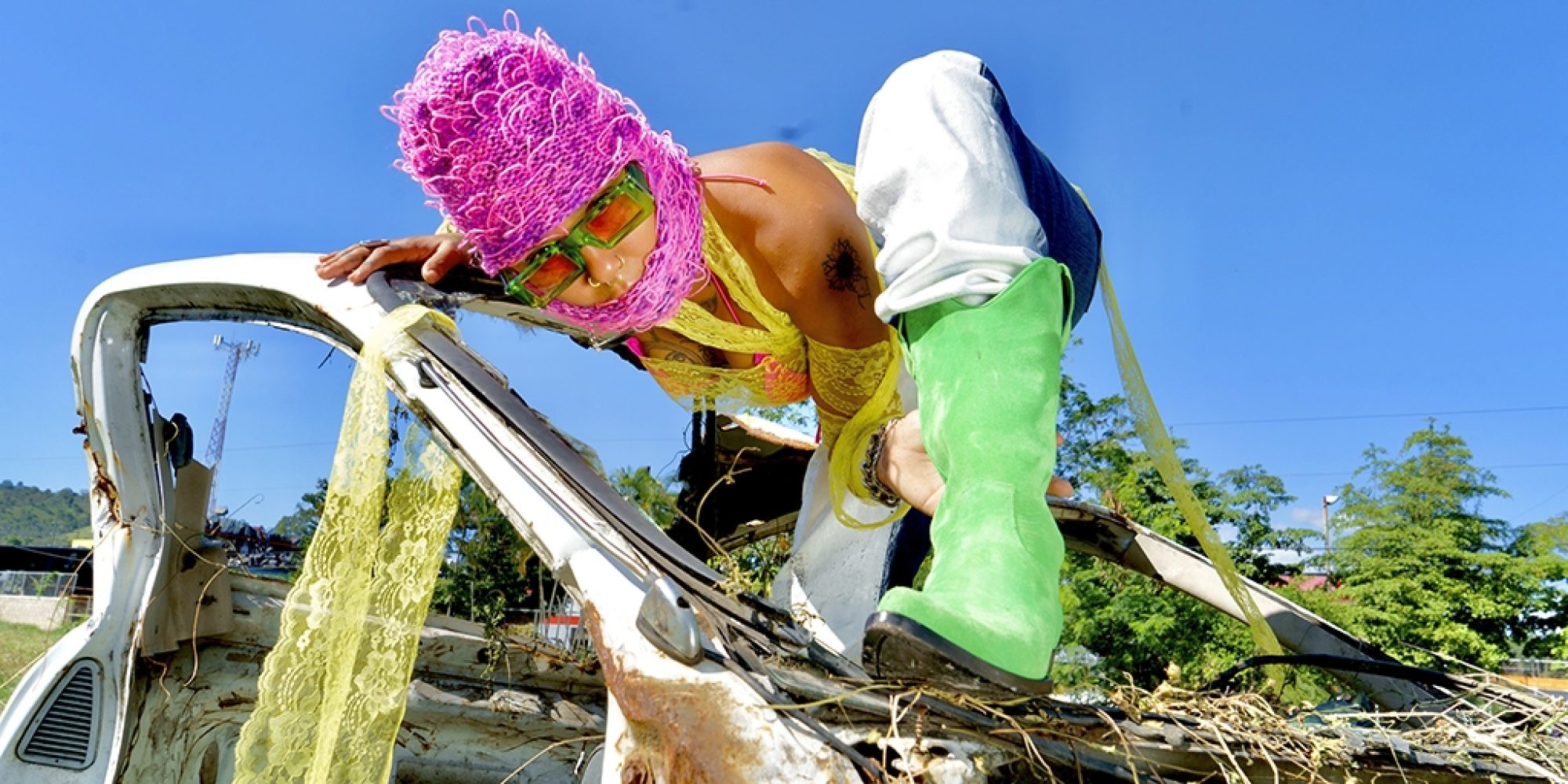Tokischa Peralta of the Dominican Republic is a rising dembow star, known for her infectious beats, bold fashion statements and unapologetic lyrics. However, her music has stoked controversy and backlash from religious and educational institutions due to its content about sex and drug use. In an interview, we discussed Tokischa's journey, her evolving music and how she overcame her challenges.
Religious fanatics, conservatives and even the Drug Control Agency of the Dominican Republic have attacked Tokischa's art. Tokischa comes from Los Frailes, in East Santo Domingo, and she had a troubled upbringing. Her mother migrated to the U.S. when Tokischa was a toddler, and her father was in and out of jail. During this time, she took to the arts and creativity, starting with acting in front of a mirror. When she turned 18, she started working at a call center where she learned English. Soon afterward, she took to sex work to fund her musical endeavors.
Tokischa grew up in the bajo mundo, a term that refers to the lower-income neighborhoods in the Dominican Republic. To her, being from the Bajo Mundo is a source of inspiration and pride. She believes it shaped her into the person and artist she is today. In our interview, she said, "It's my inspiration, it's my roots, it's where I come from. So it's what I take and what I have." Tokischa's music reflects her upbringing, as she sings about the struggles and realities of life in the Dominican Republic.

Her first dembow to light up the D.R., "Desacato Escolar," emanated from her high school experience. Initially, the song was supposed to feature the son of a prominent figure in the radio industry. However, the boy's mother forbade her son from participating, and the song sat in the studio for months until Tokischa's producer showed it to rapper Yomel. The resulting music video depicted Tokischa and her crew in a school bus: no seatbelts, sexy school outfits and twerking galore. On producing the music video, she says, "It was really fun to make–and it's real. In the school bus, it's a whole 'nother world for the student. It's fun; there are fights. It's a lot of stuff going on in that little bus. So when we dropped all of this, it was so controversial, because the education system was like 'this is wrong,' but actually, this was very real." As a result, the Dominican Republic banned the song as education authorities condemned the video.
Nevertheless, it became a huge hit, and Tokischa's career skyrocketed. She recalls, "People had the video, and they were passing it [around] like it was a porn video. They were commenting on my video saying, 'I have the Desacato Escolar music video, D.M. me and I will send it to you.' And that was a cultural moment."
Tokischa's rise to fame continued to pose challenges. Circa 2020, she held a photoshoot that caused a religious backlash. The shoot took place in a small church where people go to pray and bring flowers, and it was named "Whores Also Pray." It showed Tokischa kneeling to pray, wearing a sexy outfit. The idea was to represent faith as a cultural entity permeating even the bajo mundo, prostitutes and delinquents. "It was very spiritual. It was like: I'm a whore; I'm a bitch; I'm a prostitute, but at the end of the day, I go to my house, and I pray. I thank God for the money that I got, and before I go out, I even pray and tell God, 'Oh please help me get money, help me get customers,' you know? 'Thank you for another day; forgive me for what I'm doing; take care of my child.' It's a cultural thing; it's religious; all of us have that faith. When I made this picture, it was taken the wrong way."
The intention of the photoshoot reflects the reality that many under-represented people live in the D.R.. People took the photos out of context and accused her of vandalizing the church. She had to go to court and pay a fine, and the church tried to ban her from the town where the shoot took place. Despite the backlash, Tokischa stands by her artistic expression and right to express herself freely. "It's a difference if I make a song or if I have this power and I am telling kids, 'You have to smoke weed, you have to be a prostitute, you have to be a thief.' But I don't do that. I'm just singing everything that I went through." Tokischa is an example of how people from challenging upbringings and underrepresented communities can be successful by being themselves.
Some criticize her for glorifying taboos–drugs, prostitution and sexuality. But Tokischa maintains that she's simply sharing her experiences and giving hope to those who may have gone through similar situations. In our interview, she said, "I made myself a successful person by having faith in myself, by not limiting myself, by thinking outside of the box, by creating an amazing future for myself."
In November, Tokischa and Mexican artist Natanael Cano released "Kilos de Amor." The song is a story of two delinquent lovers and uses drug trafficking and addiction as a metaphor for their love. She explained the song's concept: "It's talking about this woman that's so obsessed with this man, and she doesn't wanna let him go. She'd rather kill him because she's so in love—it's crazy." She laughed. "I'm not that person."
Tokischa had a positive experience working with Natanael, known for creating the genre corrido tumbado—Natanael's spin on the traditional Mexican corrido. Tokischa explains the new genre: "Usually Mexican music is very sentimental, very cultural." The corrido tumbado is "Mexican music, but hood, wild." The music video is a dramatic scene between the lovers featuring guns, tattoos, folkloric Mexican dress, wedding imagery and Tokischa's pierce-the-veil-esque vocals. Indeed, it is a unique gift to the world of Latin music and the world of popular music at large. Tokischa praised Cano's musical talent and personality, describing him as a "rockstar," who is also "very sweet." When asked about her love of exploring different genres of music, she compared it to trying different types of food. These artists believe that life is about trying new things and learning new things, and music is a way to do that.
Looking ahead to 2023, Tokischa has a busy schedule planned. She will be traveling to South America to perform in Argentina, Colombia and Chile for the first time and has promised a new and exciting show. She is also working on new music and experimenting with different sounds. Additionally, she will be performing at several music festivals, including Lollapalooza in Argentina, Chile and Paris, alongside major artists like Drake, Billie Eilish and Rosalia.
Tokischa Peralta is a trailblazing artist who defies stereotypes and challenges societal norms. Her music speaks to a generation that's often marginalized and underrepresented. Yet, despite backlash and criticism, Tokischa remains true to herself and her artistry. As she continues to break barriers and make a name for herself in the music industry, she inspires many who are trying to overcome their challenges and pursue their dreams.
#tokischa #tokischaperalta #dembow #reggaeton #endoramcneary










